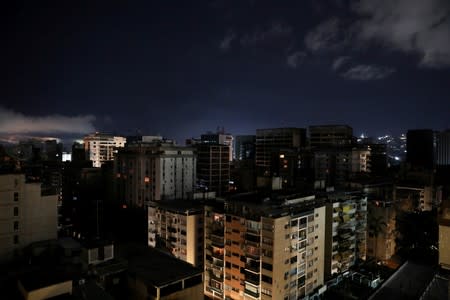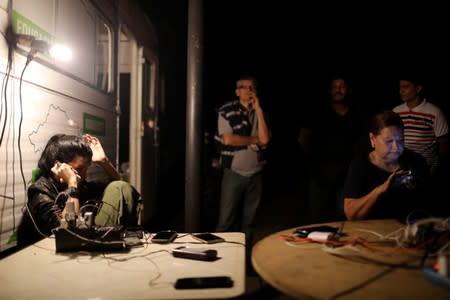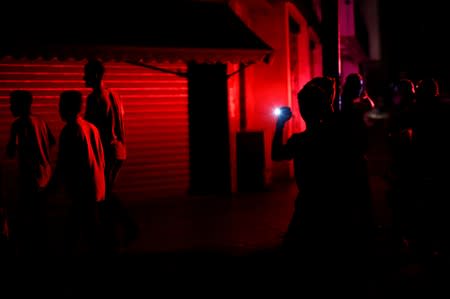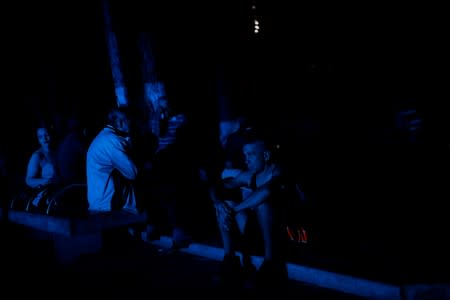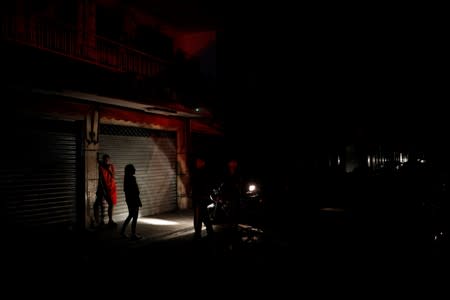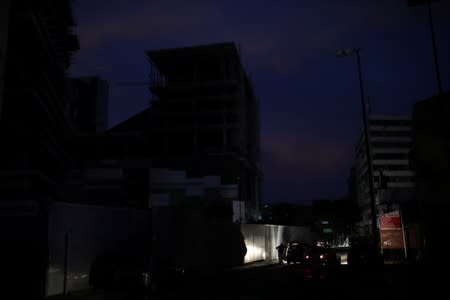Power flickers across Venezuela after worst blackout since March
By Sarah Kinosian and Mariela Nava
CARACAS/MARACAIBO, Venezuela (Reuters) - Caracas residents woke up on Tuesday with the lights back on after the worst blackout since March knocked out power in half of Venezuela a day earlier, although service remained down in other states and some key oil infrastructure went offline.
State power company Corpoelec, in a statement on Tuesday, said nine states were in the process of recovering service and power had fully returned to the capital Caracas. Tuesday's blackout left over half of the OPEC nation's 23 states in the dark.
Reuters witnesses said power remained out in the northwestern oil state of Zulia, along with Tachira state on Colombia's border and the central states of Carabobo and Aragua, depriving residents of running water and phone service.
In some areas, the shortage of cooking gas meant the only way to prepare meals was to burn firewood.
President Nicolas Maduro's government told Venezuelans not to go to work or school on Tuesday to "help the process of reconnection."
Information Minister Jorge Rodriguez said the outage on Monday was caused by an "electromagnetic attack." He offered no evidence in echoing similar allegations the government made during blackouts earlier this year.
Opponents of the Maduro government, along with power experts, instead note that Venezuela's national power grid has fallen into serious disrepair after years of inadequate investment and maintenance.
The blackouts have increased the suffering for many Venezuelans already dealing with widespread shortages of food and medicine and the world's highest inflation rate. Even without the blackouts, some Venezuelans' homes only receive water a few days a week, or less.
More than 4 million Venezuelans have fled abroad to escape the economic crisis.
In Maracaibo, Venezuela's second largest city, lines of more than 100 cars formed outside gas stations, while most stores were closed and public transport had largely shut down, according to a Reuters witness.
"Maracaibo has gone dry," said housewife Maria Gonzales, 40. "Today I plan to buy things that will not get damaged. Everything I had in the fridge I lost because it is too hot."
Iris Urdaneta, a 52-year-old accountant earning some $10 a month, attended a rally on Tuesday in Caracas held by opposition leader Juan Guaido, along with several hundred other Venezuelans angry about shortages.
"Last night when the power went out, I thought, oh God, here we go again," said Urdaneta, whose son and daughter have left for Peru.
Urdaneta, who held a yellow and red sign that read "water," said water comes only once a week at her home in the Caracas district of El Cementerio.
"I'm here because I have hope that Guaido will get us out of this," she said.
The Petropiar upgrader, a joint venture by state oil company PDVSA and Chevron that mixes heavy crude from the Orinoco belt into exportable grades, shut down due to the blackout, according to a source familiar with the facility's operations.
The country's largest oil refineries, Amuay and Cardon, had electricity, although they have been operating well below capacity for months.
PDVSA did not immediately respond to a request for comment. The company said on Twitter that fuel supply at its gas stations was guaranteed nationwide and that there were sufficient inventories for the national market.
(Reporting by Sarah Kinosian, Luc Cohen and Vivian Sequera in Caracas, Tibisay Romero in Valencia, Maria Ramirez in Puerto Ordaz, Mircely Guanipa in Maracay, Keren Torres in Barquisimeto, Anggy Polanco in San Cristobal; Writing by Angus Berwick; Editing by Bernadette Baum and Bill Trott)
